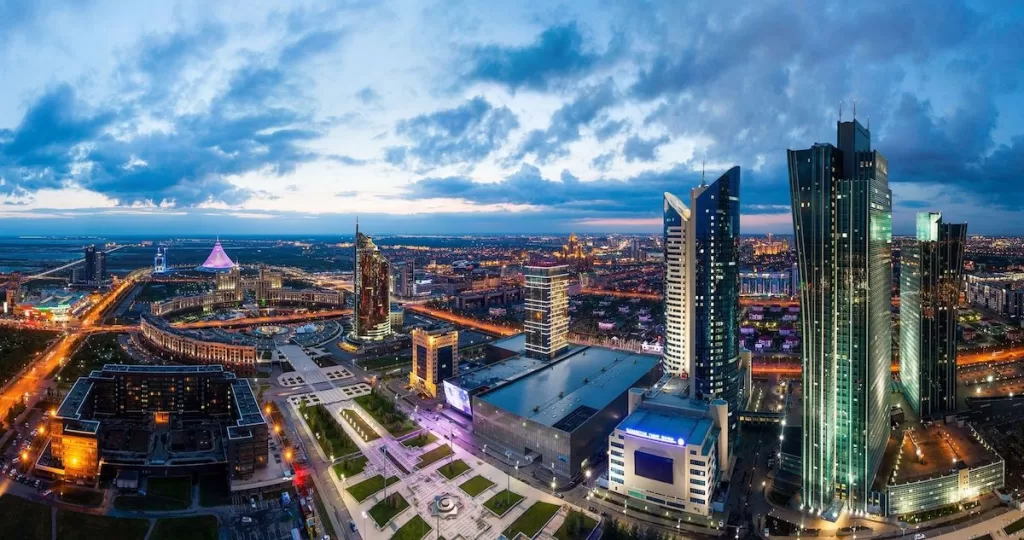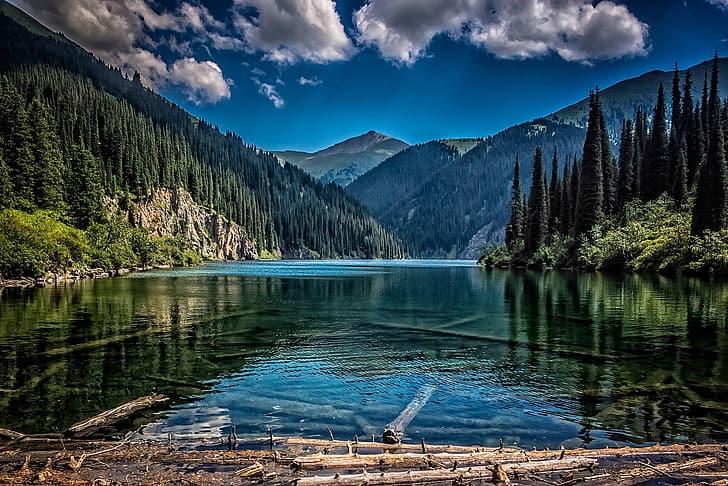Kazakhstan Country Report

Kazakhstan, the largest country in Central Asia, is known for its vast steppes, rich history, and diverse cultural heritage. Since gaining independence from the Soviet Union in 1991, Kazakhstan has embarked on a path of economic and political transformation under the leadership of Nursultan Nazarbayev, who served as president for nearly three decades until his resignation in 2019.
The country has achieved significant economic growth driven by its abundant natural resources, particularly oil and gas, as well as strategic investments in infrastructure and diversification of its economy. However, Kazakhstan still faces challenges related to political governance, human rights, and corruption, despite efforts towards modernization and reform.
The country plays a pivotal role in regional geopolitics, serving as a bridge between Europe and Asia and actively participating in international organizations and initiatives. As Kazakhstan continues to navigate its post-Soviet transition, it seeks to balance economic development with political stability and social progress.
Last updated: July 12, 2023
Security
Kazakhstan prioritizes security as a cornerstone of its national policy, striving to maintain stability in a complex geopolitical environment. The country faces diverse security challenges, including threats from terrorism, organized crime, and regional instability. Kazakhstan’s strategic location at the crossroads of Europe and Asia also brings concerns related to border security and transnational threats.
The government employs a multi-faceted approach to address these challenges, including investment in defense capabilities, law enforcement, intelligence gathering, and international cooperation. Kazakhstan actively participates in regional security initiatives such as the Collective Security Treaty Organization (CSTO) and the Shanghai Cooperation Organization (SCO), bolstering its defense posture and fostering cooperation with neighboring states. Additionally, efforts to promote social cohesion, economic development, and political stability contribute to Kazakhstan’s overall security strategy, aiming to safeguard the country’s sovereignty and territorial integrity.
Last updated: July 12, 2023
Infrastructure

Kazakhstan has made substantial investments in infrastructure development to support its growing economy and improve connectivity within the country and beyond.
The government has focused on upgrading transportation networks, including roads, railways, and airports, to facilitate trade and transportation of goods. Kazakhstan’s strategic location along the “New Silk Road” has also led to investments in modernizing its logistics and transit infrastructure, positioning the country as a key hub for regional trade and transit.
Additionally, Kazakhstan has prioritized energy infrastructure, particularly in expanding oil and gas pipelines to export its abundant energy resources to international markets. Efforts to enhance telecommunications and digital infrastructure are also underway to support economic diversification and innovation.
Despite progress, challenges such as regional disparities and financing constraints remain, requiring continued investment and strategic planning to sustain Kazakhstan’s infrastructure development efforts.
Last updated: April 11, 2023
Environment

Kazakhstan’s environment faces various challenges stemming from industrial development, resource extraction, and climate change. The country’s vast steppe landscapes and rich biodiversity are threatened by pollution, deforestation, and habitat degradation. Industrial activities, including mining and energy production, contribute to air and water pollution, impacting both human health and ecosystems.
Moreover, Kazakhstan experiences water scarcity, particularly in the Aral Sea region, where the ecological disaster resulting from the sea’s depletion has had far-reaching environmental and socio-economic consequences. Climate change exacerbates these challenges, leading to more frequent extreme weather events and desertification.
Despite these issues, Kazakhstan has taken steps to address environmental concerns, including initiatives to promote sustainable development, conservation efforts, and international collaborations. Efforts to balance economic growth with environmental protection are crucial for ensuring the long-term health and sustainability of Kazakhstan’s natural resources and ecosystems.
Last updated: March 15, 2022
Health and Medical
Kazakhstan’s healthcare system has undergone significant reforms since gaining independence in 1991, aiming to improve access to healthcare services and modernize medical infrastructure. The country provides universal healthcare coverage to its citizens, with a mix of public and private healthcare facilities. Kazakhstan has made strides in medical education and training, producing a skilled workforce of healthcare professionals. However, challenges remain, including disparities in healthcare access between urban and rural areas, shortages of medical equipment and medications, and issues related to quality of care. The government has implemented various initiatives to address these challenges, including investments in healthcare infrastructure, healthcare workforce development, and the introduction of health insurance reforms. Additionally, Kazakhstan actively participates in international health initiatives and partnerships to enhance public health outcomes and address emerging health threats. Despite progress, ongoing efforts are needed to ensure equitable access to quality healthcare services for all citizens.
Last updated: September 6, 2023
Political
Kazakhstan operates under a presidential republic system with a strong executive branch. Nursultan Nazarbayev, who served as president from independence in 1991 until 2019, played a dominant role in shaping the country’s political landscape. Under his leadership, Kazakhstan pursued a policy of gradual political and economic reform while maintaining stability. However, concerns about political freedom, human rights, and corruption persist. Following Nazarbayev’s resignation in 2019, Kassym-Jomart Tokayev assumed the presidency. While Kazakhstan holds regular elections, opposition parties have limited representation, and the political environment is largely dominated by the ruling Nur Otan party. Despite efforts to diversify the economy and attract foreign investment, Kazakhstan’s political system continues to face scrutiny regarding its commitment to democratic principles and the rule of law.
Last updated: July 12, 2023















